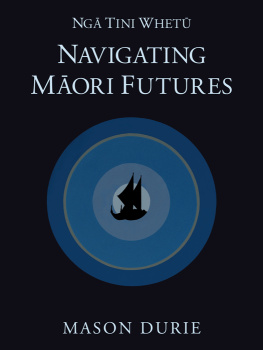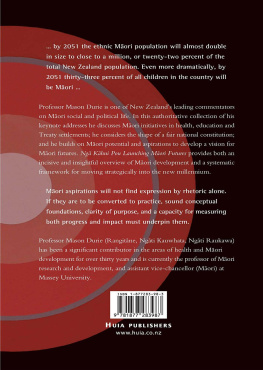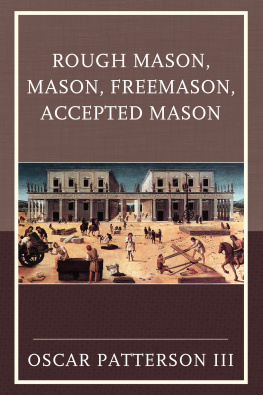Mason Durie - Nga Tini Whetu
Here you can read online Mason Durie - Nga Tini Whetu full text of the book (entire story) in english for free. Download pdf and epub, get meaning, cover and reviews about this ebook. publisher: Huia (NZ) Ltd, genre: Politics. Description of the work, (preface) as well as reviews are available. Best literature library LitArk.com created for fans of good reading and offers a wide selection of genres:
Romance novel
Science fiction
Adventure
Detective
Science
History
Home and family
Prose
Art
Politics
Computer
Non-fiction
Religion
Business
Children
Humor
Choose a favorite category and find really read worthwhile books. Enjoy immersion in the world of imagination, feel the emotions of the characters or learn something new for yourself, make an fascinating discovery.
- Book:Nga Tini Whetu
- Author:
- Publisher:Huia (NZ) Ltd
- Genre:
- Rating:3 / 5
- Favourites:Add to favourites
- Your mark:
- 60
- 1
- 2
- 3
- 4
- 5
Nga Tini Whetu: summary, description and annotation
We offer to read an annotation, description, summary or preface (depends on what the author of the book "Nga Tini Whetu" wrote himself). If you haven't found the necessary information about the book — write in the comments, we will try to find it.
Nga Tini Whetu — read online for free the complete book (whole text) full work
Below is the text of the book, divided by pages. System saving the place of the last page read, allows you to conveniently read the book "Nga Tini Whetu" online for free, without having to search again every time where you left off. Put a bookmark, and you can go to the page where you finished reading at any time.
Font size:
Interval:
Bookmark:
First published in 2011 by Huia Publishers
39 Pipitea Street, PO Box 17335
Wellington, Aotearoa New Zealand
www.huia.co.nz
ISBN 978-1-86969-484-5
Copyright Mason Durie 2011
All rights reserved. No part of this publication may be reproduced, stored in a retrieval system, or transmitted in any form or by any means, electronic, mechanical, including photocopying, recording or otherwise, without prior permission of the publisher.
National Library of New Zealand Cataloguing-in-Publication Data
Durie, Mason.
Ng tini whet : navigating Mori futures / Mason Durie.
Includes bibliographical references and index.
ISBN 978-1-86969-484-5
1. Maori (New Zealand people)Economic conditionsMaori (New Zealand people)Social conditions. 3. Maori (New Zealand people)Politics and government. [1. Tngata whenua. reo. 2. Hauora tinana. reo. 3. Tikanga rua. reo. 4. Ohaoha. reo.]
I. Title.
330.08999442dc 22
Ebook production 2011 by meBooks
Tn koutou katoa.
This book owes much to the many people and organisations that kindly invited me to present papers at conferences between 2003 and 2010. Convening a conference, whether at the World Bank in Washington or on a marae in Aotearoa New Zealand, demands considerable time and effort as well as a deep appreciation of the context within which development is occurring. Without exception, the convenors of those conferences designed programmes that were not only pertinent to current debates and interests but were relevant to the future and to advances at local and global levels.
In comparison to the number of other speakers and participants, my contributions were relatively small; it was always enriching to hear other themes and perspectives and to listen to viewpoints that spanned a wide diversity of peoples, countries, subjects and challenges. Over the seven years that encompass the timeframe of Ng Tini Whet, I have been privileged to learn much from others, to witness thoughtful exchanges between experts, and to hear inspirational messages built around the hopes of scholars and communities for a better world in the years to come. Although different, insofar as the messages were variously focused on indigenous development, Mori development, gains in health, and futures planning, the twin themes of human advancement and the resolution of problems that hinder advancement were never far from the surface. This book is one way of adding to their efforts and endorsing the themes they promoted.
An academic environment lends itself well to the articulation of ideas and an analysis of the determinants of progress, and I am grateful to Massey University for the opportunities for research and for enabling me to participate in the several conferences and symposia both in New Zealand and overseas.
As with the earlier volume, Ng Khui Pou: Launching Mori Futures, Huia Publishers have again provided invaluable help and advice, and I am grateful for their willing assistance and expert opinion.
Finally, without the longstanding support and encouragement of my wife, Arohia, and her perceptive comments on texts as they were drafted, this collection of papers would not have been possible.
Kia ora.
Mason Durie
Ko tini whet ki te rangi
Ko Rangitne nui ki te whenua.
For centuries the heavens have provided navigational markers for ocean voyagers. Because the appearance of stars can be predicted according to the season, and the positions of stars are consistently aligned to magnetic compass points, constellations of stars such as Te Pae Mhutonga, act as sentinels in unchartered waters. Without recourse to the stars it is unlikely that Mori would have reached Aotearoa or that settlers from the northern hemisphere would have found land in the south. Further, quite apart from their navigational qualities, stars have fired the imagination of generations, acting as sources of wonderment and inspiration and challenging adventurers to seek new fields and remote domains.
The combined themes of navigation on the one hand and discovery on the other are germane to Ng Tini Whet: Navigating Mori Futures. This book is about the future and Mori journeys towards the future. It does not discount the past nor disregard the many expeditions made in bygone years but it recognises a changing seascape and the need for voyages that will go in search of new destinations. Importantly, those voyages will be more likely to reach preferred landings if their passages are illuminated; not necessarily by celestial lights but by pointers that can bring lucidity to murky waters. Moving ahead, towards new levels of achievement, new technologies, new alliances and new economies, will require more than simply a message of hope or good intention. It will be necessary to read the signs of change and to know how change can be managed and manipulated to deliver the best results for the most people. Taking charge of the future rather than charging into the future will be an increasingly relevant challenge for tomorrows leaders. They will need to identify stars that can point the way.
Ng Tini Whet: Navigating Mori Futures is a sequel to Ng Khui Pou: Launching Mori Futures. Both books discuss perspectives relevant to Mori in the years ahead and highlight Mori aspirations, experiences, and excursions in contemporary times, often in novel situations. The papers in Ng Khui Pou had been presented at conferences and seminars between 1999 and 2002 and represented views that were pertinent to those years. Ng Tini Whet follows a similar pattern but contains a set of twenty-five papers presented at various conferences in New Zealand, Australia, Canada, Malaysia, and the USA between 2004 and 2010. Though less than a decade separates the two books, the gap between them is sufficiently long to have seen the emergence of trends and challenges that were barely visible in 2002.
Papers in this book cover a wide range of topics and are primarily about Mori journeys and indigenous aspirations in a rapidly changing society and in a world that has become increasingly complex yet, ironically, more accessible. Global climate change, global mobility, global technological advancement now rival national policies and programmes as factors that can accelerate or undermine Mori advancement.
Although each paper in Ng Tini Whet has been broadly shaped around the topics selected for particular conferences and by the associated academic disciplines, they share similar and often overlapping messages. Inevitably, in order to preserve the integrity of each chapter, this has resulted in some repetition. But apart from minor editing to maintain a consistent style, each chapter is essentially the same as the original presentation. The Mori dimension traverses a range of subject areas and can be seen as a cross-cutting theme that is relevant to many disciplines and a number of policy areas. The holistic thrust highlights the shortcomings of a sectoral approach and also points to the limitations of inquiries that act in isolation from other fields of inquiry. In that respect the breadth of Mori development is challenging conventional approaches to the acquisition of knowledge and understanding. While specialist knowledge in any particular area will open up new territories and add depth to understanding, the complexities of a future world will also demand a capacity to integrate multiple threads so that a coherent fabric can be woven.
Global transitions and trajectories form part of the rubric within which change is discussed; indeed it would be futile to speculate on Mori futures without considering the impacts of worldwide trends. New Zealand, like other countries, is not immune from global influence. However, although the Mori and indigenous focus is contextualised by global challenges and discoveries, the book contains an equally strong focus on Mori distinctiveness, a cultural reality that provides a unifying link and a starting point for discussions about the future. Maintaining Mori distinctiveness in the face of competing international forces will be a major challenge in the years to come as it was in the nineteenth and twentieth centuries. It is unlikely that Mori distinctiveness will be unchanging or inflexible; people will change and cultural markers will shift. Earlier experiences suggest that culture changes as society changes. But there is also evidence that even in the face of threatened assimilation an underlying ethos remains; and within that ethos lies Mori distinctiveness.
Font size:
Interval:
Bookmark:
Similar books «Nga Tini Whetu»
Look at similar books to Nga Tini Whetu. We have selected literature similar in name and meaning in the hope of providing readers with more options to find new, interesting, not yet read works.
Discussion, reviews of the book Nga Tini Whetu and just readers' own opinions. Leave your comments, write what you think about the work, its meaning or the main characters. Specify what exactly you liked and what you didn't like, and why you think so.












